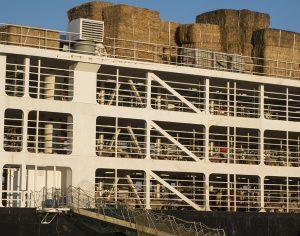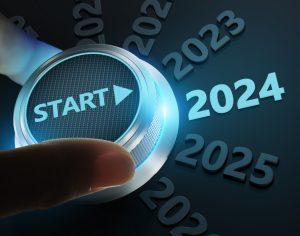Selecting the right professional will be one of the most important decisions a business will take this year as Brexit looms. Let us make sure you get it right.
From next year, UK PLC will begin to lodge customs declarations when goods are to be exported to the European Union (EU). “Just send the truck” will become a distant memory soon.
Carrying out customs formalities requires a set of skills which rarely exists in-house. Hiring a customs and global trade manager and will be essential for smooth and efficient trading with Europe. The alterative to acquiring customs expertise is not encouraging: Your goods may get stuck at the border and your business finds itself on the wrong side of the law by accident.
In this article, we go beyond the standard questions that HR will ask just anyone. Instead, we focus on the five requirements of particular relevance to look out for when hiring customs and global trade staff for the first time.
- Subject Matter Expertise
That is a no-brainer. The successful candidate must have a sound knowledge of customs and global trade rules and regulations. In CV and interview, their customs competence must shine through. But how to really assess their skills if you are not an expert in the area. For a start, can use this handy sheet to identify areas of conversation. Picking any of the 20+ topics listed, ask open-ended questions, like, for example: “Tell me about your vision for … in our company”. This allows them to apply their knowledge, showcase their ability to explain complex subjects in a straightforward fashion, and display their knowledge of your company. If you like the response, chances are the candidate can be retained for the next round. If they can flash a nice certificate or diploma in world customs compliance and regulations in front of you, that is a bonus.
- Zoom in on their approach: Trade to
comply or comply to trade?
Customs professionals are trained to follow government laws, regulations, rules and guidance. Dedicated to compliance, they do not getting tired of saying things like “We can’t do this, we can’t do that, it is
not compliant”. It is an essential truth that businesses must hear. However, successful candidate must also show they are aligned with business growth objectives too. They need to demonstrate a plausible plan of how to turn the traditional “cost-center” customs & global trade into an enabler of sustainable and profitable growth. Make sure that no candidate discussion is complete without talking about how to reduce costs wherever possible and streamlining and optimizing operations. The right choice for customs manager in your business will have some great ideas to optimize duty spent or cut it out completely. That’s the one you want to zoom in on.
- Are you up-to-date?
Global trade professionals must always stay up to date with government regulations. Without someone in the business checking what trade laws changed, a global business is exposed to risk and may forgive growth opportunities. But carrying out these law checks can be time-consuming. Laws of multiple jurisdictions and topics like customs, trade agreements and export controls must be carefully researched. Once identified, the legal change must be summarized in clear language and shared across the organisation to determine the right cause of action. Do not let the candidate go without tasking them to describe their strategy to stay always up to date with customs & trade regulations.
- Up-skill yourself or downgrade your
business
Global trade is complex. It changes all the time. In Customs, upskilling is NOT a nice to have. Making sure your staff is well trained is essential for ongoing compliance and future business growth. The right candidate for your business is the one who is always eager to learn more. This enthusiasm shines through in their CV. You can probe during the interview stage: How can your continuous education and learning enable our business growth objectives? The right candidate will show how acquiring new skills can reduce customs duties, accelerate border clearance time and smoothen HMRC’s audit process significantly. Ideally, the right candidate will propose to self-develop a training plan independently that they can work on every month and for which they are accountable. The right candidate may bring some innovative training ideas that are both effective and low costs, such as modern bite-sized online education with the flexibility to learn time, place and device.
- Do you come with a helping hand?
The fifth key area to investigate is to understand their approach for implementing customs related projects. Is this something they can do by themselves? Or do they to engage with third parties? Usually, for setting up customs processes and procedures, sometimes, a helping hand maybe useful. How do they plan to get that support? Are they connected to a community of customs managers and global trade professionals? Do they regularly exchange views and ideas with their peers to get top tips and best practices? What is their strategy of finding first-class support but without a hefty price tag? Getting clarity on this point is essential as you assess their capacity and capability to implement the change that your business needs to undergo to get ready to “go global”.
Conclusion:
It’s about what, when and who you know
Hiring a customs and global trade professional will be one of the most important decisions you will make this year. Hire right and getting through customs will be straight-forward and seamless post-Brexit, with or without a deal. When evaluating candidates for the job, assess their overall subject matter expertise. Next, ensure they can present a clear strategy on how they plan to continuously stay up to date with changing customs & trade laws in all of the countries you trade with. Third, understand their attitude and towards lifelong learning and the need to continuously upskill. Finally, zoom in on their network and their ability to reach out for a helping hand when needed.
In short, I recommend that you look for a customs manager who is confident in her or his expertise, feels supported and empowered and looks towards the future with excitement. Find a customs manager that inspires you. They are the ones that will grow your business further and faster than you can imagine yourself right now.
Share via:


















































